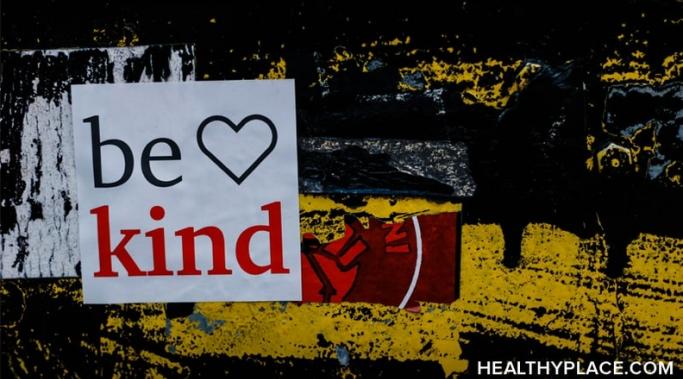It's a strange irony that the skills I learned from being part of the team here at HealthyPlace are the reason that I'm leaving my position. Hear me out, and I'll try to explain what I mean.
Peer-to-Peer
In my job as a pediatric occupational therapist, I spend a lot of time focusing on parent education. I find that building a parental understanding of a child's condition is the single most important factor in improving that child's quality of life. I'm beginning to learn that the same is true in mental illness – the level of understanding and compassion that family (or other relevant supporters) have for a person's mental illness has a huge bearing on their experience.
I can now say that I have experienced family trauma, although, for years, I was reluctant to use the word "trauma" in relation to anything about my own life or experiences. To me, that felt like a serious word that I didn't have the right to use unless I had fled a warzone or survived a natural disaster.
Explaining a family member's diagnosis to others can be scary because you never know how they're going to react. Sometimes it works out really well. For example, my fiancé couldn't be more understanding of my brother's chronic mental illness. Not only is he accepting of the way this affects our family's lives, he is also proactive in thinking of ways that we can better support my brother. Not everyone is like this, though, which is why explaining a family member's mental health diagnosis to others can be so challenging.
My brother recently expressed his fear that mental illness has made him a burden on our family. This completely broke my heart, and I was pained to tell him that it isn't true. If you need to hear that message too, let me remind you today -- mental illness does not make you a burden.
I've been learning in therapy that so many of the things I've accepted as "fact" all my life are actually subjective beliefs passed down from my family. I loved the challenge my therapist set me this week of deconstructing my family's beliefs on various topics, including mental health.
Family expectations can be draining for a lot of reasons. Depending on what kind of family you come from, there’s a whole bunch of different unwritten rules about the types of lives we “should” live. My brother’s mental illness challenged our family expectations in a major way, and when I reflect on it I see that he changed our family culture for the better.
Defining your role in mental health support can be tricky in a family situation, especially if you have some sort of professional healthcare background. I had recently qualified as an occupational therapist, and when my brother was diagnosed with chronic anxiety and depression, I put a lot of pressure on myself to be more than just a sister because of that. I wish I could take that back.
I feel a growing responsibility to normalize mental health discussions outside of dedicated platforms, such as this blog. For people like my brother who live with chronic mental illness to exist stigma-free, we need to demystify the topic of mental illness in the wider community.
Supporting someone in denial about their mental health can be a very delicate situation. A friend of mine is living this reality at present -- her partner is exhibiting clear symptoms of mental illness but is not able to have a conversation about it just yet. Supporting my friend has reminded me of when my brother was also in denial about his mental health before he received a diagnosis. Here are some of the things I learned through that experience.









